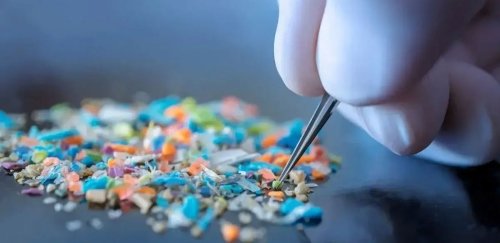
Experts research plastic pollution within Rhode Island’s coastal ecosystems.
Research conducted at URI estimates that the top two inches of Narragansett Bay’s floor consists of tiny plastic particles (microplastics), which humans are ingesting through their air, food and water. This can lead to health issues, including nervous system damage, reproductive problems and potentially cancer.
Four faculty members from Rhode Island College’s departments of Biology and Psychology have joined 20-plus academics from the University of Rhode Island, Brown University and Roger Williams University to research the socio-ecological impact of microplastics on Rhode Island’s coastal ecosystems.
Recently, the team was awarded a $7 million grant from the National Science Foundation’s EPSCoR E-RISE Program to support their research. The initial award is for four years with the possibility of renewal.
Led by URI associate professor of chemical, biomolecular and materials engineering Daniel Roxbury, the project brings together experts from a wide range of fields. RIC team members consist of biologists, Assistant Professor Carla Narvaez Diaz, Professor Daniel Hewins and Associate Professor Anabela Maia; along with psychologist, Professor Katherine Lacasse.
At RIC, Maia and Narvaez Diaz will be tackling the effects of microplastics on fish and invertebrate species in Narragansett Bay by sampling them and exposing them to known microplastics in the lab setting. Hewins will partner with URI to sample sediments, while Maia will partner with URI to model how microplastics can be transported through the food web. Lacasse, along with Hewins, will work with a social science team and community partners to help explain the risks we face from microplastics and what Rhode Islanders can do to reduce microplastic waste and protect their families.
“We are eager to work with local organizations in Rhode Island,” says Lacasse, “to learn more about how microplastics are impacting our local waterways and soil, and, in turn, impacting the health and well-being of our communities.”
“And we are extremely excited for this project to get off the ground,” adds Maia, “as we have identified microplastics as an area of concern for the last four years. This is an opportunity to involve RIC faculty and students in hands-on research that is current and relevant.”
